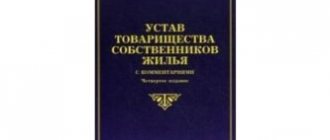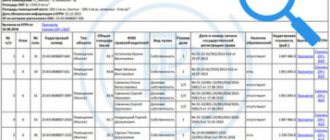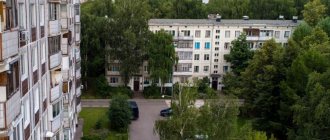Procedure for holding an in-person meeting
The methods of informing the residents of the house about the meeting, as well as the requirements for the number of people present, are approved by Art. 45 Housing Code of the Russian Federation.
Important! If more than half of the residents attended the meeting of apartment owners in the apartment building, it is considered successful.
Most often, a general meeting is held at the proposal of one person, a group of persons or a management company (Part 7, Article 45 of the Housing Code of the Russian Federation). The initiator’s task is to warn everyone living in the house in advance (10 days before the event) that a meeting will take place on the appointed day.
The warning is sent in the form of a registered letter with notification. The announcement is also placed on the information board. It is important that the stand is visible to all residents (Part 4, Article 45 of the Housing Code of the Russian Federation).
READ ALSO: Objection to a court order to collect debts for housing and communal services.
Important issues that require decision making are discussed at the meeting. Residents can vote in person or absentee. Both types of voting are conducted in absentia and in person. At the same time, it is important to designate the time when you need to obtain information about the voting results of persons who are not present at the meeting of all owners.
Thus, it becomes possible to manage the meeting and monitor the quorum of people who personally came to the meeting. At the same time, the voting results of citizens who are not personally present at the meeting are received at the meeting.
Please note! If the quorum of residents present at the meeting is not reached, it will be supplemented by citizens who vote in absentia.
Who pays for major repairs in an apartment building?
Does the management company have the right to increase tariffs? Read here.
Who is responsible for the common property in an apartment building, read the link:
All votes of active and passive meeting participants are summed up, and the quorum is calculated. This form is convenient when considering issues when at least two-thirds of the votes are needed to make a decision on them (parts 1-3.1, 3.2-3.5 of Article 44 of the RF Housing Code).
If the first stage of a meeting with such an agenda is in person, and then follows in absentia, then the following situation may arise: more than half of the owners attended the meeting in person, but only 2/3 voted in absentia. That is, the in-person event took place, but it will not be possible to hold it in absentia.
Quorum
The powers of the general meeting of members of the homeowners' association are established in accordance with Article 45 of the Housing Code of the Russian Federation and the charter of the partnership. The general meeting of members of the homeowners association is valid if more than half of the members of the association or their representatives are present.
Thus, in accordance with the requirements of the Housing Code, the general meeting of HOA members is competent (has a quorum) only if two conditions are simultaneously met:
FIRST CONDITION (it is indicated in Part 3 of Article 45 of the Housing Code of the Russian Federation, to which Article 146 of the Housing Code refers us, and is important because it determines the norm of representation of HOA members as owners of premises)
In Part 3 of Art. 45 of the Housing Code of the Russian Federation states: “The general meeting of owners of premises in an apartment building is valid (has a quorum) if the owners of premises in this building or their representatives with more than 50% of the votes of the total number of votes took part in it.” To check whether the first condition is met, you should count the number of votes held by the owners of premises participating in the general meeting of the HOA. Part 3 Art. 48 of the Housing Code defines the approach to such a calculation: “The number of votes that each owner of a premises in an apartment building has at a general meeting of owners of premises in a given building is proportional to his share in the right of common ownership of the common property in a given building.” In paragraph 5 of the Order of the Department of Housing Policy and Housing Fund of Moscow No. 393 dated August 23, 2005, the methodology for such calculation is clarified: “The share of each owner is determined by dividing the area of the premises (according to the certificate of ownership) by the sum of the areas of residential and non-residential premises in the house (according to the explication of the BTI), located in the corresponding types of property (private, state).” This condition is especially relevant for those houses in which not all owners of premises are members of the HOA. Despite the fact that this condition does not speak of a “meeting of HOA members”, but of a “general meeting of owners”, the provisions of the article also apply to a meeting of HOA members (this is expressly stated in Part 3 of Article 146 of the Housing Code). This is largely due to the fact that, in addition to the meeting of HOA members, a general meeting of owners must be held in the house every year (Part 1 of Article 45 of the Housing Code of the Russian Federation). As a result of the correct fulfillment of the first condition, the annual meeting of HOA members is simultaneously considered an annual general meeting of owners. If the first condition is not met, then not only Part 3 of Art. 146 of the Housing Code, but also Part 1 of Article 45 of the Housing Code of the Russian Federation. SECOND CONDITION (indicated in Article 146 of the Housing Code and determines the norm of representation of HOA members as participants in the partnership)
“The general meeting of members of the homeowners’ association is valid if more than half of the members of the association or their representatives are present at it” (Part 3 of Article 146 of the Housing Code of the Russian Federation). Membership in the HOA arises on a personal basis in accordance with the provisions of Part 1 of Article 143 of the Housing Code. Thus, the count of the number of HOA members who took part in the meeting is carried out by personalities, and not by any other criteria. To support the arguments about the need to simultaneously comply with these two conditions, we cite the authoritative opinion of one of the creators of the Housing Code, P.V. Krasheninnikov:
“... one of the conditions for the competence of the general meeting of members of the partnership is the need for the presence at this meeting of members of the partnership, who, as the owners of premises in the apartment building in which the partnership was created, own votes... constituting more than 50% of the total number of votes belonging to all owners of premises in such a building... Thus, the Housing Code of the Russian Federation imposes more stringent requirements for determining the competence of a general meeting of members of a homeowners’ association than is established for the competence of a general meeting of owners of premises in an apartment building.”
(Article-by-article commentary to the Housing Code of the Russian Federation / Edited by P.V. Krasheninnikov M., 2006. P.596, 598.) When deciding the issue concerning the powers of the general meeting of members of the homeowners’ association, Part 3 of Article 146 of the Housing Code of the Russian Federation sends to the provisions of Article 45 of the Housing Code of the Russian Federation, which regulates the procedure for holding a general meeting of owners of premises in an apartment building. Part 3 of Article 45 establishes that “in the absence of a quorum for holding an annual general meeting of owners of premises in an apartment building, a repeat general meeting of owners of premises in an apartment building must be held.” Thus, the Housing Code does not provide for the possibility of extending the timing of meetings of owners and members of the HOA beyond the time periods originally specified in the served notices of such meetings.
Article 44. General meeting of owners of premises in an apartment building
Article 44. General meeting of owners of premises in an apartment building
[Housing Code] [Section II] [Chapter 6]
. The general meeting of owners of premises in an apartment building is the management body of the apartment building. A general meeting of owners of premises in an apartment building is held for the purpose of managing the apartment building by discussing agenda items and making decisions on issues put to vote.
1.1. Persons who have accepted from the developer (the person providing the construction of an apartment building) after issuing permission to put an apartment building into operation premises in this building under a transfer deed or other transfer document, have the right to participate in general meetings of owners of premises in an apartment building and make decisions on issues referred by this Code to the competence of the general meeting of owners of premises in an apartment building, in the manner prescribed by this Code, within a year from the date of issuance of permission to put the apartment building into operation.
. The competence of the general meeting of owners of premises in an apartment building includes:
- 1) making decisions on the reconstruction of an apartment building (including its expansion or superstructure), construction of outbuildings and other buildings, structures, structures, major repairs of common property in an apartment building, on the use of the capital repair fund, on reconstruction and (or) redevelopment of premises that are part of the common property in an apartment building;
- 1.1) making decisions on choosing a method for forming a capital repair fund, choosing a person authorized to open a special account in a Russian credit institution, and performing transactions with funds located in a special account;
- 1.1-1) making decisions on the amount of the contribution for capital repairs in terms of the excess of its size over the established minimum amount of the contribution for capital repairs, the minimum amount of the capital repairs fund in terms of its excess over the established minimum amount of the capital repairs fund (if the law of the subject The Russian Federation has established a minimum size of the capital repair fund), placing temporarily free funds of the capital repair fund, formed in a special account, on a special deposit in a Russian credit institution;
- 1.2) making decisions on the receipt by a homeowners’ association or a housing construction cooperative, a housing cooperative or another specialized consumer cooperative, a management organization and, in the direct management of an apartment building, by the owners of premises in this building by a person authorized by a decision of the general meeting of such owners, a loan or a loan for capital repair of common property in an apartment building, on determining the essential terms of a credit agreement or loan agreement, on the receipt by these persons of a guarantee, guarantee for this loan or loan and on the conditions for obtaining the specified guarantee, guarantee, as well as on repayment at the expense of the capital repair fund of the loan or loan , used to pay for the costs of major repairs of common property in an apartment building, and for the payment of interest for the use of this credit or loan, payment from the capital repair fund for the costs of obtaining the specified guarantees and sureties;
- 2) making decisions on the limits of use of the land plot on which the apartment building is located, including the introduction of restrictions on its use, as well as on concluding an agreement on the establishment of an easement, an agreement on the implementation of a public easement in relation to the land plot related to the common property in the apartment building ;
- 2.1) making decisions on the improvement of the land plot on which the apartment building is located and which belongs to the common property of the owners of premises in the apartment building, including the placement, maintenance and operation of landscaping and landscaping elements on the specified land plot;
- 3) making decisions on the use of the common property of the owners of premises in an apartment building by other persons, including the conclusion of contracts for the installation and operation of advertising structures, if for their installation and operation it is intended to use the common property of the owners of premises in an apartment building;
- 3.1) making decisions on identifying persons who, on behalf of the owners of premises in an apartment building, are authorized to conclude agreements on the use of the common property of the owners of premises in an apartment building (including agreements for the installation and operation of advertising structures), to submit documents for approval of reconstruction and ( or) redevelopment of premises that are part of the common property in an apartment building, for the conclusion of an agreement on the establishment of an easement, an agreement on the implementation of a public easement in relation to a land plot related to the common property of the owners of premises in an apartment building, and on the persons authorized to sign these agreements , as well as the procedure for receiving funds provided for by these agreements on the terms determined by the decision of the general meeting;
- 3.2) making decisions on the use of the system or other information systems when holding a general meeting of owners of premises in an apartment building in the form of absentee voting;
- 3.3) making decisions on identifying persons who, on behalf of the owners of premises in an apartment building, are authorized to use the system or other information systems when holding a general meeting of owners of premises in an apartment building in the form of absentee voting (hereinafter referred to as the administrator of the general meeting);
- 3.4) making a decision on the procedure for the administrator of the general meeting to receive messages about holding general meetings of owners of premises in an apartment building, decisions of owners of premises in an apartment building on issues put to vote, as well as the duration of voting on issues on the agenda of the general meeting of owners of premises in an apartment building in the form of absentee voting using the system;
- 3.5) making a decision on the procedure for financing expenses associated with convening and organizing a general meeting by the management organization, the board of a homeowners’ association, housing or housing construction cooperative, or other specialized consumer cooperative in accordance with Part 6 of Article 45 of this Code;
- 4) choosing a method of managing an apartment building;
- 4.1) making decisions on current repairs of common property in an apartment building;
- 4.2) making a decision to grant the council of an apartment building the authority to make decisions on the current repairs of common property in an apartment building;
- 4.3) making a decision to vest the chairman of the council of an apartment building with the authority to make decisions on issues not specified in Part 5 of Article 161.1 of this Code, with the exception of the powers falling within the competence of the general meeting of owners of premises in an apartment building;
- 4.4) making a decision on the conclusion by the owners of premises in an apartment building, acting on their own behalf, in the manner established by this Code, respectively, of an agreement for cold and hot water supply, sewerage, electricity supply, gas supply (including the supply of domestic gas in cylinders), heating (heat supply , including the supply of solid fuel in the presence of stove heating) (hereinafter also referred to as an agreement containing provisions on the provision of municipal services), contracts for the provision of services for the management of municipal solid waste with a resource supplying organization, a regional operator for the management of municipal solid waste;
- 4.5) making a decision on consent to transfer residential premises to non-residential premises;
- 5) other issues referred by this Code to the competence of the general meeting of owners of premises in an apartment building.








